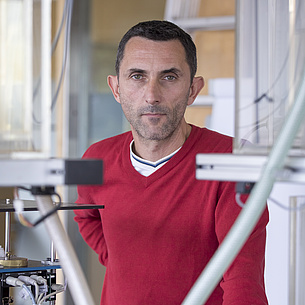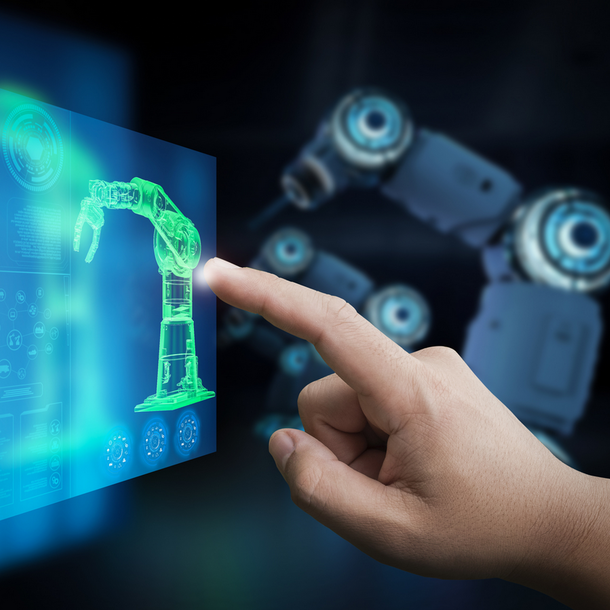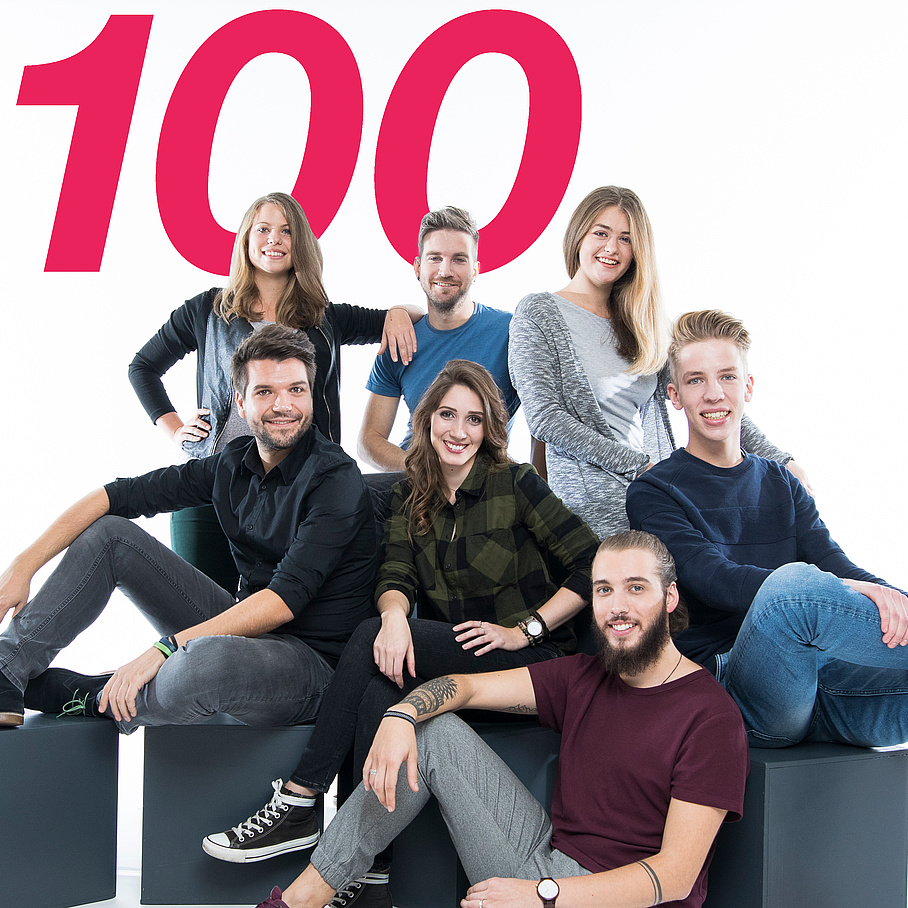Quick Facts
- Duration of study: 4 semesters
- ECTS credit points: 120
- Academic degree:
Diplom-Ingenieurin
orDiplom-Ingenieur
(Dipl.Ing. or DI), equivalent to the Master of Science (MSc) - Language of instruction: English
The Master's Programme
In the Master's Degree Programme in Digital Engineering, you will deepen and expand your skills in the fields of electrical engineering, mechanical engineering and computer science in order to be able to design and create complex networked systems that are used in the various specialized areas.
In this programme, you will have the opportunity to acquire mathematical skills in the areas of numerical optimisation, probability theory, statistics and stochastics, but also will learn the fundamentals of machine learning and learning algorithms. You will learn methods that you can use to mathematically model complex dynamic systems and to network subsystems through digital communication.
Depending on your interests, you will gain more knowledge in one of six interdisciplinary areas and apply this knowledge to solve specific engineering problems. For example, you will work on developing mobile robots, automated manufacturing equipment, sustainable mobility systems, smart infrastructure, and much more.
By taking part in student teams at TU Graz, you have yet another opportunity to explore new technologies in various fields with other students. (Self-driving) racing cars, autonomous search and rescue robots, or even building rockets – as a digital engineer, you can play a role everywhere.
Focus Areas
In the course of your studies, you will increase your knowledge in one of the following areas:
Robotics: You will design a mobile robot that can perform a specific task using adapted hardware and software. For accomplish this, you will use machine learning methods and apply algorithms used for world modelling, control and decision-making in mobile robots.
Production and Logistics: You will become familiar with digitalized production techniques and logistical processes. You will then learn how modern production and logistics systems are modelled, simulated, optimized and designed. During this process, you will learn more about automated production machines and transport means, for example.
Mobility and Transportation: You will learn the fundamentals of automotive engineering and other mobility systems, learning how to model or simulate the dynamic behaviour of vehicles. You will also acquire skills that enable you to use digital technologies to develop sustainable vehicle and mobility systems.
Internet of Things: You will learn about networked and internet-connected embedded systems, as well as how reliable and secure these systems are. Focal areas include energy-efficient wireless networking, positioning as well as cryptography and computer security and their applications.
Energy and Environmental Systems: In this module, a focus is placed on topics related to sustainable energy production, conversion, storage and distribution. Among other things, you will learn basic concepts related to the production of heat and biofuels from biomass and learn how to measure and model environmental impacts.
Computational Science and Engineering: You will learn more about how multi-physical systems are modelled and acquire fundamental knowledge about numerical methods, such as the finite element method, which are used to simulate these systems. In addition, you will independently carry out simulations of practically relevant coupled field problems.

In order to develop complex machines for production, you need extensive interdisciplinary expertise in the areas of mechanics, electrical engineering and computer science. As a young entrepreneur in Graz, I benefit every day from the excellent training I received in these areas at TU Graz. At that time, this training was still offered in the form of an individual degree programme, and I am thrilled that such a comprehensive mechatronic degree programme is now offered in Styria.
Research projects at TU Graz
Researchers at TU Graz working in a wide variety of specialisation areas and individual disciplines are applying future technologies to find solutions in the field of Digital Engineering. In the research field Internet of Things, for example, the following projects are being carried out:
Drones are already being used to observe the effects of climate change (glacier recession, landslides) in inaccessible mountain regions. In order to be able to make such observations over a large area, researchers are planning to use swarms of drones in the future, which can then make precise observations, just like a flock of birds with thousands of eyes. To prevent them from crashing in the event of radio interference, work is being done to ensure reliable and delay-free wireless communication between the devices.
The smart home contains countless control devices and sensors that, for example, recognize who is in the room, automatically adjust the lighting, or turn up the temperature when the owner approaches the home in the car. Researchers at TU Graz have developed a solution that enables these sensors and control devices to communicate directly with each other regardless of incompatible radio interfaces.
Admission
The prerequisite for admission is a completed bachelor’s degree in a relevant subject.
Graduates of the Bachelor's degree programme in Digital Engineering at Graz University of Technology and the Bachelor's degree programme in Mechatronics at the Johannes Kepler University Linz are accepted without any conditions.
Graduates of other studies that cover aspects of electrical engineering and information technology, computer science and mechanical engineering to a sufficiently high degree can obtain information and apply at study@tugraz.at for admission.
1. Admission Procedure
For the academic year 2025/26 there will be no admission procedure.
You can go directly to the next step (2. Admission).
2. Admission
- Admission and deadlines for international students
- Admission and deadlines for Austrian students who are registering to study at TU Graz for the first time
If you have already been admitted to a degree programme at TU Graz, or have studied at TU Graz before, please come to the Registrar's Office in person to complete your admission during the admission period.
Fragen zur Zulassung?
Contact study@tugraz.at
Career Prospects
Professional Fields
Graduates of the Bachelor's Degree Programme in Digital Engineering are in high demand as experts for complex technical systems. They develop technologies that will be used in the future, for example, in the fields of autonomous driving and medical technology. They also conduct research intelligent energy networks and innovative drive concepts. They optimise or design and implement new algorithms for production processes, which are also used in industry.
Not only can you pursue a scientific career at research institutions and universities, but your expertise is also in demand in industrial companies. Due to the interdisciplinary education, you can work in numerous industries. Your knowledge will find particular application
- in mechanical engineering
- in logistics
- in the automotive industry, as well as
- in the field robotics.

Students gain networked skills in the fundamentals of electrical engineering, computer science and mechanical engineering. Together with a solid education in mathematics, this knowledge qualifies graduates for enter a variety of positions in industry and research and makes them extremely sought-after commodities on the market.



